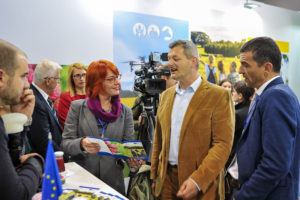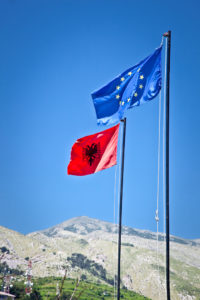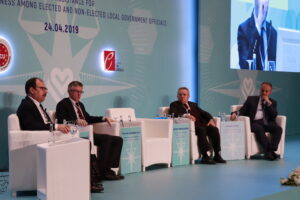
Technical Assistance for Implementation of Civil Society Dialogue and Civil Society Support Programmes (TR2015/DG/01/A5-01/001)
The overall aim of the project is to increase bilateral exchanges and cooperation between CSOs in Turkey and the EU at local, regional and national levels, to promote awareness raising initiatives on importance and benefits of membership of Turkey to the EU within Turkey and EU and on

Support for Policy Reform Accession and Effectiveness (SUPRAE)
In March 2020, North Macedonia began accession negotiations with the EU. However, the country still needs to meet EU standards, enact essential reforms, and institutional capacities to comply with the acquis and clusters. The project’s goal is to assist North Macedonia in its EU accession by increasing strategic

Capacity Building for the Alignment with the Acquis in the areas of Agriculture, Rural Development, Food Safety, Veterinary and Phytosanitary Policy
This project improves the planning, legislative, and institutional capacity of Serbia’s Ministry of Agriculture , Forestry and Water Management part of the country’s preparations for EU membership. Project supports Serbia in the EU accession process through the preparation of the Negotiation Positions and drafting or amending the national

Technical Assistance for Strengthening Institutional Capacity of the Judiciary and Execution System for the Fight against Addiction
The contract will contribute to the improvement of institutional capacity of judiciary in terms of fight against drug addiction. In this context the contract will cover activities such as trainings, workshops, needs assessment, drug addiction awareness raising group programmes, family counselling programmes, establishment of a monitoring and integration

Support to the EU Integration Process of Albania
The project aims to assist the Government of Albania to strengthen the EU integration process in line with the priorities of Stabilisation and Association Agreement and accession negotiation processes by: Supporting effective alignment of national legislation with the EU acquis and its implementation. Further strengthening the capacities of

Technical Assistance for Prevention of Corruption and Promotion of Ethics
Despite the OECD’s assessment that Turkey has made significant progress since 2007 in its efforts to combat corruption, the issue continues to represent an obstacle to economic and social progress and, potentially, to greater integration with the EU. The overall objective of the project was to contribute to

